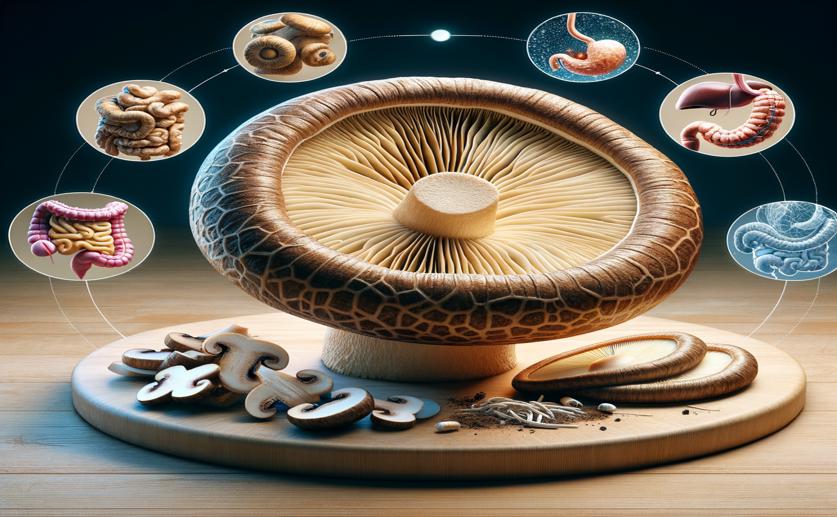
How Digesting Shiitake Mushroom Fiber Helps Protect Your Gut Health
Jenn Hoskins
23rd August, 2024

Image Source: Natural Science News, 2024
Key Findings
- The study from The Hong Kong Polytechnic University and Zhejiang University investigated LePS40, a polysaccharide from Shiitake mushrooms, and its effects on gut health
- LePS40 is resistant to digestive enzymes and gastric acid but is highly fermentable by gut bacteria, producing beneficial short-chain fatty acids (SCFAs)
- The fermentation of LePS40 increases beneficial gut bacteria and reduces harmful bacteria, enhancing gut barrier function and protecting against inflammation
References
Main Study
1) Simulated human digestion and fermentation of a high-molecular weight polysaccharide from Lentinula edodes mushroom and protective effects on intestinal barrier.
Published 1st November, 2024 (future Journal edition)
https://doi.org/10.1016/j.carbpol.2024.122478
Related Studies
2) Role of Gut Microbiota-Generated Short-Chain Fatty Acids in Metabolic and Cardiovascular Health.
3) Gut microbial fermentation promotes the intestinal anti-inflammatory activity of Chinese yam polysaccharides.
4) Systematic assessment of oat β-glucan catabolism during in vitro digestion and fermentation.



 15th June, 2024 | Jim Crocker
15th June, 2024 | Jim Crocker